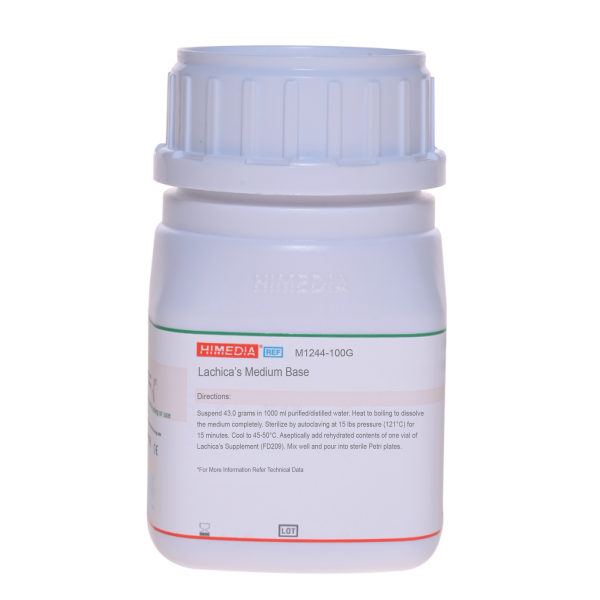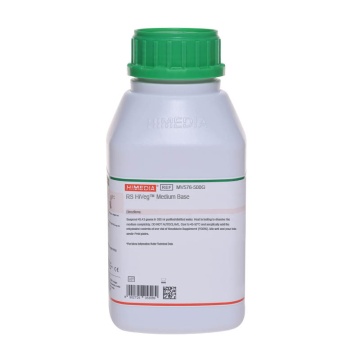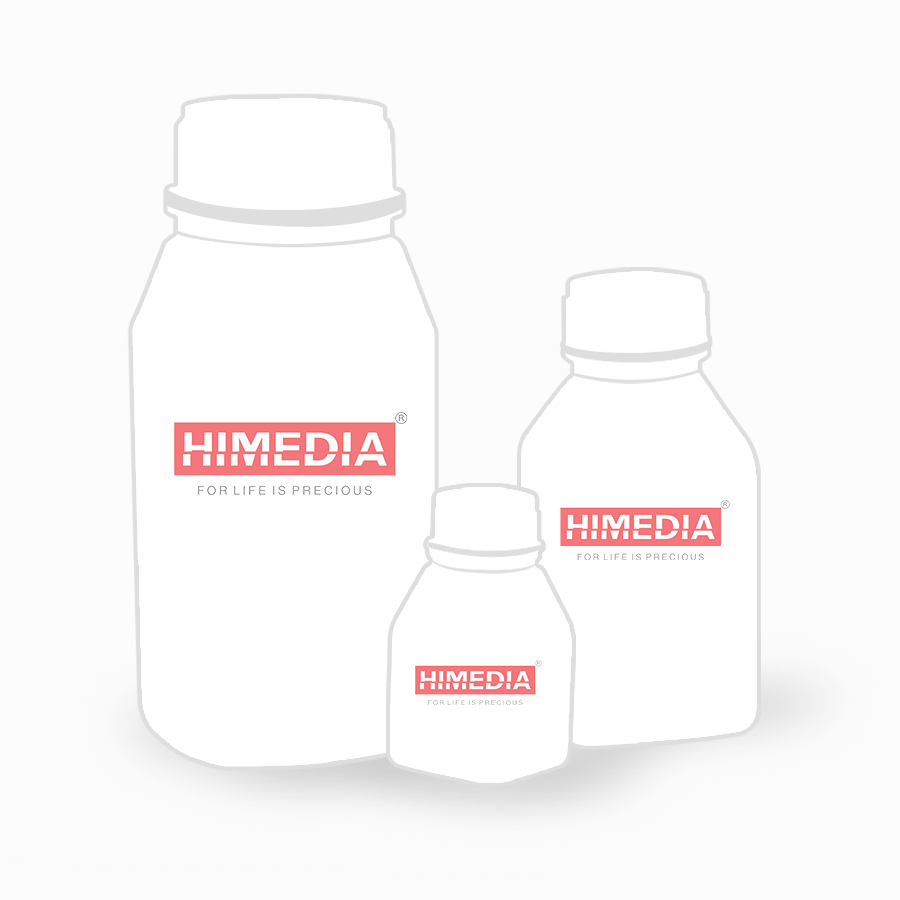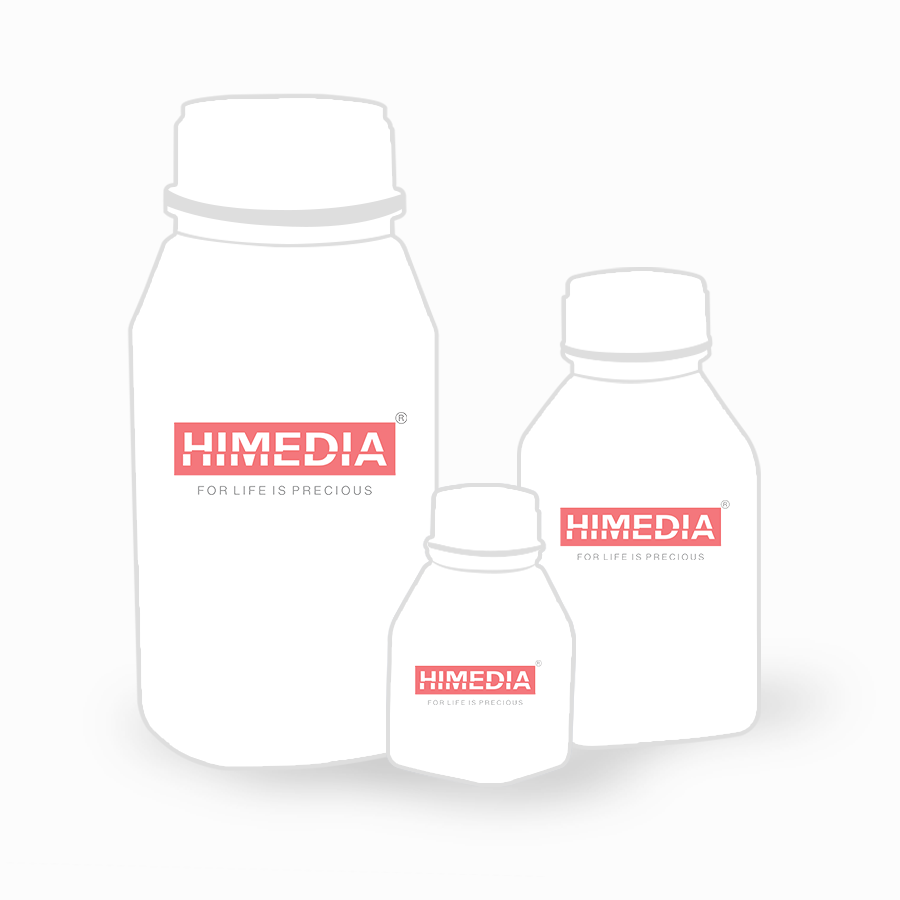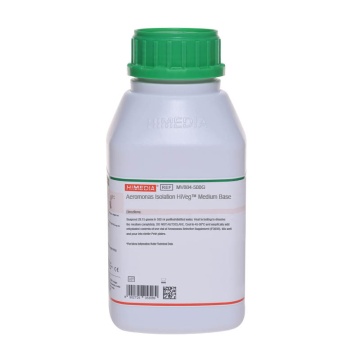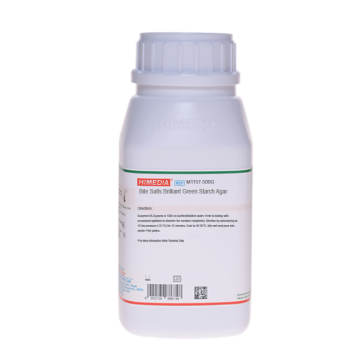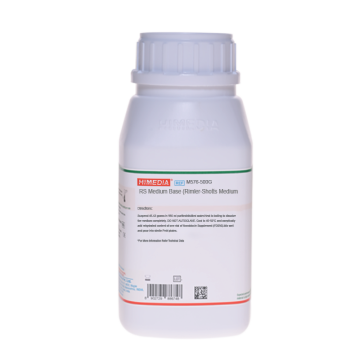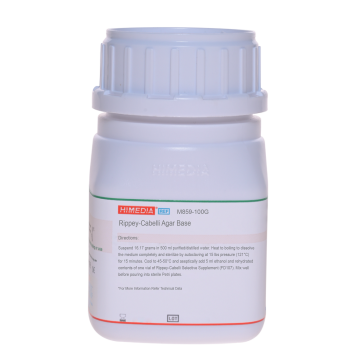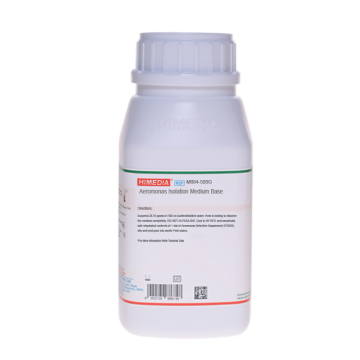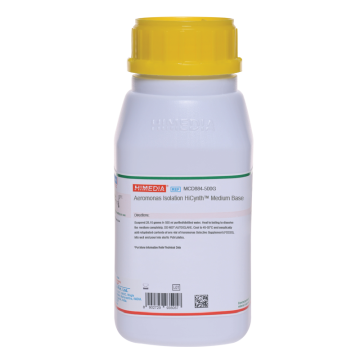 Your enquiry has been submitted
Your enquiry has been submitted
Lachica’s Medium Base
Intended Use
Recommended for isolation and cultivation of Aeromonas hydrophila from food samples stored under different temperature conditions.
Composition
| Ingredients | g/L |
|---|---|
| HM infusion B from 500 g # | 10.000 |
| Tryptose | 10.000 |
| Sodium chloride | 5.000 |
| Amylose azure | 3.000 |
| Agar | 15.000 |
Final pH (at 25°C): 7.4±0.2
**Formula adjusted, standardized to suit performance parameters # Equivalent to Beef heart, infusion from
Directions
Suspend 43.0 grams in 1000 ml purified/distilled water. Heat to boiling to dissolve the medium completely. Sterilize by autoclaving at 15 lbs pressure (121°C) for 15 minutes. Cool to 45-50°C. Aseptically add rehydrated contents of one vial of Lachica's Supplement (FD209). Mix well and pour into sterile Petri plates.
Principle And Interpretation
Aeromonas, a heterotrophic gram-negative bacterium (1) is found worldwide in all types of water, food and soil. Wound infections caused by Aeromonas usually occur when abraded mucosal surface come into contact with contaminated water, soil or marine products (fish fins or hooks) during recreational or occupational activities (1). Lachicas Medium Base, recommended by APHA is used for the isolation and cultivation of Aeromonas hydrophilla (2). This medium is a modification of SA Agar as per Lachica, formulated by Palumbo et al (3), and found to be useful in studying A. hydrophilla in foods held under different temperature conditions. Lachicas Medium is therefore also known as Modified SA Agar where SA stands for Starch and Ampicillin respectively. The original SA Medium is a differential medium, which utilizes starch hydrolysis as the differential trait and ampicillin to suppress the accompanying microflora.
In Modified SA Agar i. e. Lachicas Medium the starch has been replaced with amylose azure. This gives better and faster growth of A. hydrophila.
A. hydrophila colonies are surrounded by a light halo on blue background and the external addition of iodine to the plate is not necessary. HM infusion B and tryptose provide the essential nitrogeneous nutrients while sodium chloride maintains osmotic balance of the medium.
Type of specimen
Food samples
Specimen Collection and Handling
For food samples, follow appropriate techniques for sample collection and processing as per guidelines (3). After use, contaminated materials must be sterilized by autoclaving before discarding.
Warning and Precautions
Read the label before opening the container. Wear protective gloves/protective clothing/eye protection/face protection. Follow good microbiological lab practices while handling specimens and culture. Standard precautions as per established guidelines should be followed while handling specimens. Safety guidelines may be referred in individual safety data sheets.
Limitations
- Due to nutritional variation, some strains may show poor growth.
Performance and Evaluation
Performance of the medium is expected when used as per the direction on the label within the expiry period when stored at recommended temperature.
Quality Control
Appearance Light yellow to bluish grey homogeneous free flowing powder
Gelling Firm, comparable with 1.5% Agar gel
Colour and Clarity of prepared medium Dark blue coloured, clear to slightly opalescent gel forms in Petri plates
Reaction Reaction of 4.3% w/v aqueous solution at 25°C. pH: 7.4±0.2
pH 7.20-7.60
Cultural Response Cultural characteristics observed with added Lachica's Supplement (FD209), after an incubation at 35-37°C for 24-48 hours.
| Organism | Inoculum (CFU) | Growth | Recovery |
|---|---|---|---|
| Aeromonas hydrophila ATCC 7966 (00063*) | 50-100 | luxuriant | >=50% |
| Salmonella Typhi ATCC 6539 | >=104 | inhibited | 0% |
| Escherichia coli ATCC 25922 (00013*) | >=104 | inhibited | 0% |
Key: (*) Corresponding WDCM numbers.
Storage and Shelf Life
Store between 10-30°C in a tightly closed container and the prepared medium at 2-8°C. Use before expiry date on the label. On opening, product should be properly stored dry, after tightly capping the bottle in order to prevent lump formation due to the hygroscopic nature of the product. Improper storage of the product may lead to lump formation. Store in dry ventilated area protected from extremes of temperature and sources of ignition. Seal the container tightly after use. Product performance is best if used within stated expiry period.
Disposal
User must ensure safe disposal by autoclaving and/or incineration of used or unusable preparations of this product. Follow established laboratory procedures in disposing of infectious materials and material that comes into contact with sample must be decontaminated and disposed of in accordance with current laboratory techniques (4,5).
Reference
- Murray P. R., Baron J. H., Pfaller M. A., Jorgensen J. H. and Yolken R. H., (Eds.), 2003, Manual of Clinical Microbiology, 8th Ed., American Society for Microbiology, Washington, D.C.
- Palumbo S. A., Maxino F., Williams, A. C., Buchanan, R. L. and Thayer D. W., 1985, Appl. Environ. Microbiol., 50:1027.
- Salfinger Y., and Tortorello M.L., 2015, Compendium of Methods for the Microbiological Examination of Foods, 5th Ed., American Public Health Association, Washington, D.C.
- Isenberg, H.D. Clinical Microbiology Procedures Handbook 2nd Edition.
- Jorgensen, J.H., Pfaller, M.A., Carroll, K.C., Funke, G., Landry, M.L., Richter, S.S and Warnock., D.W. (2015) Manual of Clinical Microbiology, 11th Edition. Vol. 1.
| Product Name | Lachica’s Medium Base |
|---|---|
| SKU | M1244 |
| Product Type | Regular |
| Physical Form | Powder |
| Origin | Animal |
| Packaging type | HDPE |
| References | 1. Murray P. R., Baron J. H., Pfaller M. A., Jorgensen J. H. and Yolken R. H., (Eds.), 2003, Manual of Clinical Microbiology,8th Ed., American Society for Microbiology, Washington, D.C. |
| Customized Product Available | No |



